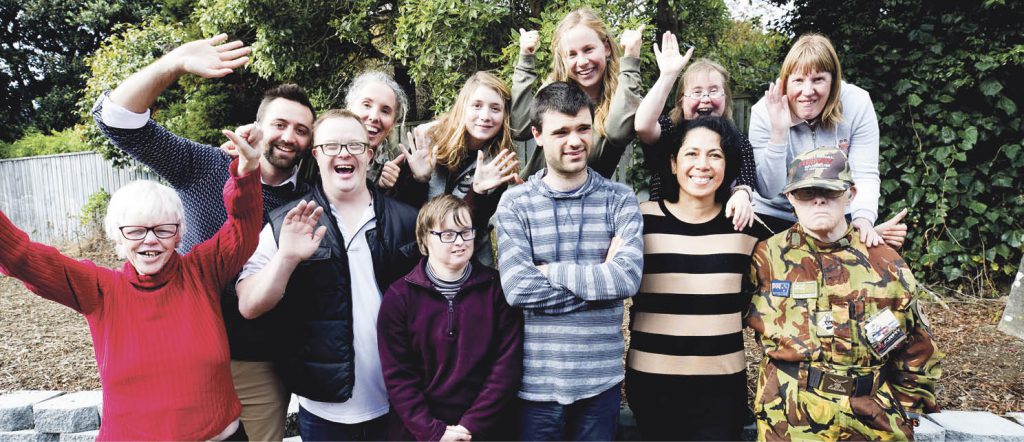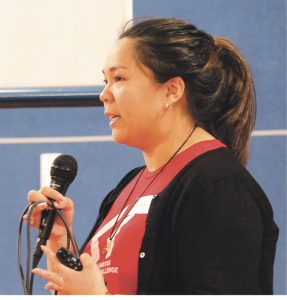WelCom September 2018:
SOCIAL JUSTICE WEEK
9-15 SEPTEMBER 2018

Every year the Catholic Bishops of New Zealand set aside a week in September for Social Justice Week, inviting us to reflect and take action on a current social justice issue.
This year, 9‒15 September, we focus on disability and participation. How can we encourage more enabling communities, affirming that everyone has a part to play in our society?

L’Arche Community whānau, Te Whaea Tapu o Kāpiti – Our Lady of Kāpiti Parish.
“Every child, every person needs to know that they are a source of joy; every child, every person, needs to be celebrated. Only when all of our weaknesses are accepted as part of our humanity can our negative, broken self-images be transformed.” – Jean Vanier, Becoming Human, 1998
In New Zealand, almost a quarter of us live with disability, often experiencing more discrimination and marginalisation than those of us without disability.
Disability is not about individual impairment, but about society. The New Zealand Disability Strategy says: “Disability is something that happens when people with impairments face barriers in society; it is society that disables us, not our impairments… It is something that happens when the world we live in has been designed by people who assume that everyone is the same.”
It is the duty and responsibility of each of us to play our own part to the fullest and remove every barrier that stands in the way of our brothers and sisters from doing the same.
If you haven’t been able to join us at one the of various diocesan preparatory workshops during August in preparation for Social Justice Week you can use our workshop kit to facilitate your own event in your diocese or parish. You can then use these materials to work with your community to encourage each of us to participate more, not only during Social Justice Week in September, but to also create and inspire ongoing positive change for the future of our church, and our nation.
SJW 2018 – Enabling more inclusive communities
Hold a parish meeting
Invite parish members, disabled and non-disabled. Have an open conversation about what barriers are in your community, and ways they might be removed.
Share stories
Invite a representative from a local disability support group or a parishioner with a disability to share their experiences at church one Sunday.
Understanding the challenges many face helps us all to become more aware of how to improve things for all.
At-home activities for families
The resources prepared for Catholic schools are great for parents to use at home with their children, no matter what their age. Encourage your parishioners to access these resources online by visiting the Caritas website at: caritas.org.nz/social-justice-schools
Run your own parish workshop
If you have been unable to attend a Caritas-hosted workshop, why not arrange your own parish workshop using our resources?
The importance of listening and valuing everybody
There were some strong messages about what it feels like to be excluded during Wellington’s preparatory workshop for Social Justice Week, held at St Francis Xavier School, Tawa, on 18 August.

Caritas staff member Joanna Viernes
presenting at the Social Justice Week workshop in Tawa.
There was a great turnout with approximately 60 participants, including groups from the Paraparaumu L’Arche community and Wellington’s Deaf and hearing-impaired communities. The input from guest speakers was highly valued.
Presenter, Stephen Dawson told the workshop attendees details about his experiences following a brain injury, and
the ensuing depression and anxiety as result of this.
“If you can imagine a magnifying glass put over all of your worries, that’s what it’s like,” he shared with the group.
Fellow parishioners were full of advice, but as Stephen added:
“What was happening was people weren’t listening to my problem.”
Bronwyn Hayward also spoke, offering her own insights about the difficulties she has faced. After a series of operations, five hospitalisations and not being able to live in her inaccessible house for five months, she has had to find her own accommodation.
“There is no respite accommodation in Wellington. They wanted to put me in a retirement home – but I’m not 50 yet, and I don’t want to be in a retirement home until I’m at least 50 – got it?”, she said.
She also told participants about how devaluing it can feel when buildings are not designed to be fully accessible.
The vital importance of being heard and valued by others were strong messages, shared throughout all five of the Caritas-hosted workshop presentations in Wellington, Palmerston North, Taupō, Hamilton and Tauranga during August.
“I am proud to be a member of the international disabled people’s community. I am disabled when other people design a world that excludes my people,” Bronwyn asserted. “We need to have disabled people on parish committees so they can share their knowledge.
You can’t be expected to know, but you can be expected to ask,” Bronwyn added.